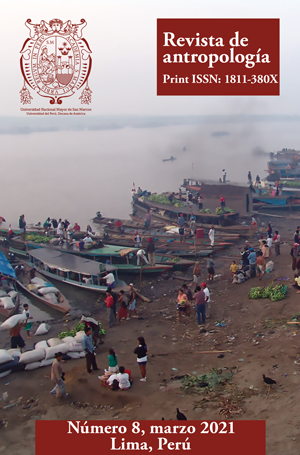The Importance of Ethics, Respect for Self-determination and the Fundamental Rights of Isolated Indigenous People in Anthropology
DOI:
https://doi.org/10.15381/antropologia.v0i8.19809Keywords:
Isolated indigenous people, self-determination, legal security and territorial protection, controlled contact, forced contactAbstract
This article addresses the resurgence of anthropological approaches promoting that states taking the initiative to establish direct and permanent relationships with indigenous peoples, or part of them, who live in isolation. It analyzes the context and the arguments used by the promoters of this position today, as well as the impacts that similar initiatives have had on indigenous peoples. In contrast, it exposes the historical process, the principles and the advances of the approach of respect for self-determination and for the territories of these peoples. Along these lines, it is committed to an anthropology that is respectful of the decisions of peoples in isolation about their way of life and the level of interaction they wish to have with the broader environment. At the same time, it raises the need to contribute to guarantee legal security and the protection of their territories, to implement preventive health measures and to put respect for their fundamental rights before personal, governmental, economic or other interests when making decisions that affect them.
Downloads
Published
Issue
Section
License
Copyright (c) 2021 Beatriz Huertas Castillo

This work is licensed under a Creative Commons Attribution 4.0 International License.
THE AUTHORS RETAIN THEIR RIGHTS:
a. The authors retain their trademark and patent rights, and also on any process or procedure described in the article.
b. The authors retain the right to share, copy, distribute, perform and publicly communicate the article published in the Revista Antropología (for example, place it in an institutional repository or publish it in a book), with an acknowledgment of its initial publication in the Revista Antropología.
c. The authors retain the right to make a subsequent publication of their work, to use the article or any part of it (for example: a compilation of their works, notes for conferences, thesis, or for a book), provided that they indicate the source. of publication (authors of the work, journal, volume, number and date).





